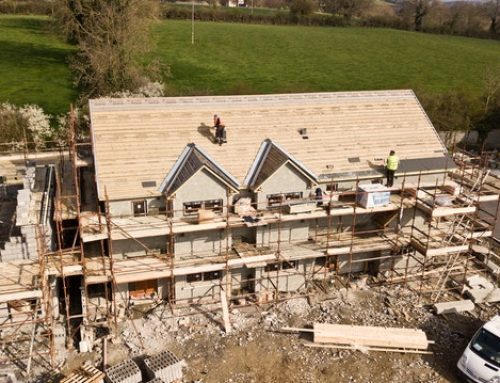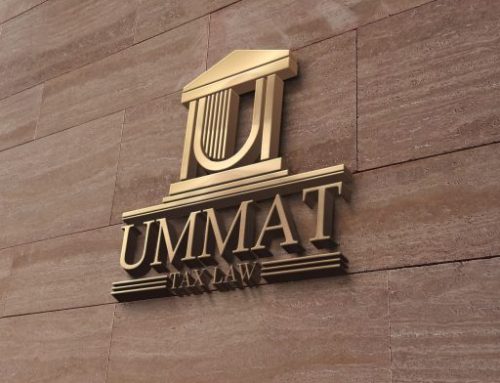Overview of Tax Court of Canada’s Ruling in 1351231 Ontario Inc v. The King
Air BnB Sale subject to GST/HST
By: Amit Ummat and Alisha Butani
Facts
In February 2008, the Appellant, 1351231 Ontario Inc., purchased a used condominium unit located at 2204 – 179 George Street, Ottawa, Ontario, Canada K1N 1J8 (the “Condominium”). The Appellant leased the Condominium between February 2008 and February 2017 to third-party individuals, as a series of long-term leases (each lease was for a period of 60 days or longer). On February 25, 2017, the Appellant listed the Condominium for rent on the Airbnb platform and rented it out to third-party individuals through a series of short-term leases, with the last Airbnb reservation ending February 26, 2018. From the short-term leases, the Appellant had a gross revenue of $11,200.00 CAD in 2017 and $43,719.00 CAD in 2018. The Appellant sold the Condominium to an arm’s length purchaser (the “Purchaser”) on January 24, 2018, with a closing date of April 11, 2018. Neither the Appellant nor the Purchaser remitted GST in respect of the sale of the Condominium. The Minister of National Revenue (the “Minister”) assessed the Appellant for $77,079.64 CAD as GST/HST that was collectible on the Condominium sale.
Issue
The issue before the Tax Court of Canada (the “Court”) was whether the sale of the Condominium was subject to GST pursuant to Division II of the Excise Tax Act, R.S.C. 1985, C. E-15 (the “Act”).
Reasoning
To answer the issue before the Court, the Court had to determine if the criteria in subsections 165(1) and (2) of the Act applied to the sale of the Condominium. The application criteria for subsection 165(1) of the Act is there must be a taxable supply made in Canada, and the application criteria for subsection 165(2) of the Act is there must be a taxable supply made in a participating province, for example, Ontario.
The Court found that the sale of the Condominium met the definition of ‘supply’ in the Act, “since supply is defined in subsection 123(1) [of the Act] as the provision of property or a service in any manner, including sale” (Paragraph 15). And further, the Court found that the sale of the Condominium was made in Canada and in a participating province because the Condominium was situated in Ontario. This left the Court to determine if the sale of the Condominium was a taxable supply such that subsections 165(1) and (2) of the Act applied. The Court spent the bulk of its analysis on answering this question.
A ‘taxable supply’ is defined in subsection 123(1) of the Act as a supply that is made during the course of a commercial activity. The relevant portion of the Act’s definition of ‘commercial activity’ is: “the making of a supply (other than an exempt supply) by the personal of real property of the person, including anything done by the person in the course of or in connection with the making of the supply” (paragraph 16). Based on the foregoing definitions, the Court ruled that because the sale of the Condominium was a supply of real property the sale was deemed to have been made in the course of a commercial activity unless the sale of the Condominium was an exempt supply.
In order for the sale of the Condominium to be an exempt supply under Schedule V of the Act, three conditions needed to be satisfied: (1) the sale of the Condominium needed to be a sale of a residential complex; (2) the Appellant was not a builder of the Condominium; and (3) the Appellant did not claim an input tax credit in respect of the purchase of the Condominium or in respect of any improvement made to the Condominium.
Concerning the second condition, the Court found that it was satisfied because the Appellant did not meet the definition of a builder in subsection 123(1) of the Act.
For the third condition, the Court concurred with the parties’ unanimous agreement that the Appellant did not claim any input tax credits with respect to the purchase of or improvements made to the Condominium, because there were no facts before the Court that would lead it to question the concession made by the parties.
With respect to the first condition, the Court found that the sale of the Condominium was not a sale of a residential complex. The reason being that while the Condominium was a ‘residential unit’ as such term is defined in the Act, the general exclusion in the Act’s definition of ‘residential complex’ was applied to the Condominium.
The general exclusion applied to the Condominium for the following reasons:
- The Condominium at the time it was sold was part of a building that is similar to a hotel, motel, inn, boarding house, lodging house or other similar premises. Indeed, akin to those types of premises, the Condominium was being offered for short-term leases, the Condominium was furnished, and the Appellant covered all costs relating to the heating, air condition and electricity of the Condominium. Further, another similarity is the supply of accommodation to third-parties for a fee on a short-term basis.
- On the date that the Condominium was sold, all or substantially all the leases under which the Condominium supplied, provided, or were expected to provide, were for periods of continuous possession or use of less than 60 days. Indeed, all the short-term leases of the Condominium were for less than 60 days and most being only for a few days.
- The Condominium was not a building or condominium owned by an individual and as such the building in which the Condominium was located was not described in paragraph (c) of the definition of ‘residential complex’ in subsection 123(1) of the Act.
Interestingly, the Court explained that the change-in-use rule for real property contained in subsection 206(2) of the Act is relevant to determine if the exclusion contained in the definition of ‘residential complex’ in the Act is applicable to the Condominium. Indeed, the Court explains that if subsection 206(2) of the Act applies to the Condominium, then the Appellant “is deemed at the time it began using the Condominium in commercial activities, to have received a supply of the Condominium by way of sale and, except where the supply is an exempt supply, to have paid GST equal to the basic tax content of the property” (paragraph 37).
The Court found that subsection 206(2) of the Act applied to the Condominium for two reasons. Firstly, the Appellant was a GST registrant when it purchased the Condominium and kept that status throughout the relevant period. And secondly, when the Appellant began offering the Condominium for short-term leases on the Airbnb platform (which were taxable supplies of real property), the Appellant began using the Condominium in the course of a commercial activity on that date because a commercial activity includes the making of any supply of real property, other than an exempt supply. As such pursuant to subsection 206(2) of the Act, the Appellant was deemed to have received a supply of the Condominium on the date the Condominium was listed on the Airbnb platform by way of sale.
The Court explained that section 197 of the Act was not applicable in this case to limit the application of subsection 206(2) of the Act that occurred on the date the Condominium was listed on the Airbnb platform because during the period from when the Appellant acquired the Condominium and the date of change in use (i.e., date Condominium was listed on the Airbnb platform) the cumulative change in use was 100%, it was not less than 10%.
Finding
In sum, the Court found that the Appellant was deemed to have acquired the Condominium on the date that the Condominium was listed on the Airbnb platform. And further because the Condominium was not a ‘residential complex’ as such term is defined in the Act, at the time it was supplied by way of sale, the supply by way of sale was not an exempt supply in Schedule V of the Act. Instead, it was a taxable supply of real property. For that reason, the Appellant’s appeal was dismissed with costs.
Key Takeaway
A key takeaway is that subsection 206(2) of the Act looks to a change in use that occurs at a specific point in time, and on the extent of the change in use that occurs at that point of time.




